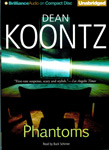
 Sunrise Alley
Sunrise Alley
By Catherine Asaro; Read by Hillary Huber
10 CDs – Approx. 11.5 Hours [UNABRIDGED]
Publisher: Blackstone Audiobooks
Published: December 2007
ISBN: 1433213007
Themes: / Science Fiction / Romance / Androids / Artificial Intelligence / California / Cyborgs /
When a shipwrecked stranger washed up on the beach near research scientist Samantha Bryton’s home, she was unaware that he was something more than human. He said his name was Turner Pascal—but Pascal was dead, killed in a car wreck. This man only held the remainder of Pascal’s consciousness in a technologically-enhanced humanoid body. He was, in fact, an experiment by the notorious criminal Charon, a practitioner of illegal robotics and android research. Charon has been secretly copying human minds into android brains, with plans to make his own army of slaves. On the run from this most ruthless criminal, Samatha and Turner seek help from Sunrise Alley, an underground organization of AIs and androids that have gone rogue. But these cybernetic outlaws are rumored to have their own hidden agenda.
It may not be so much that women and men are from different planets as women and men care about different things. Or it may be just that Catherine Asaro and I care about different things. Very different things. I have this hypothesis: people, even when they are lying to you, or writing fiction, can tell you a lot about themselves by what they focus on over and over. The word that kept coming up over and over again in Sunrise Alley was “trust.” Catherine Asaro, or at least her viewpoint character, Samantha Bryton, cares a whole helluvalot about trust. Me, I don’t care about trust, at least not in the way Asaro seems to wants me to. Based on the scenes in Sunrise Alley Asaro seems to think that being chased is also of great interest to a reader. Maybe it is to some readers. It isn’t to me. Turner Pascal, the mobile MacGuffin, is being chased prior to the novel’s start. Then Turner, the bellboy turned android, and Samantha, the scientist turned beachcomber, are chased all over the globe. They are chased in cars, by helicopter, by jet, on foot, in cars again.
The meme of an artificial person, android or evolving intelligence as Asaro dubs it, is often an interesting idea to work with in fiction. Philip K. Dick did some amazing things with it Do Androids Dream Of Electric Sheep? as did Alfred Bester in Fondly Fahrenheit. Even later career Robert A. Heinlein managed to tell a compelling story with an artificial person in Friday. William Gibson’s Neuromancer is a globe trotting adventure with an artificial intelligence as the MacGuffin. But Catherine Asaro’s take on AI and androids leaves me empty and depressed.
When Samantha and Turner aren’t being chased by unseen foes they are usually making love in one of Samantha’s many beds (in one of her many houses), or in a tastefully decorated secure facility bedrooms (where they are being held prisoner). But those looking for scene after scene of socially redeeming hot piston on human action will also be sadly disappointed. The order of the day in Sunrise Alley is for the scientist and the bellboy to show each other their emotions, their vulnerable sides and speak essentially the same dialogue over and over.
The android, Turner, has an inferiority complex and his savior/companion/scientist girlfriend is needed to shore up his insecurities. The central problem in the novel, other than their being chased, comes when Turner starts to modify his body in order to solve their problems and escape their captors (because apparently Samantha has no skills herself). In doing this Turner is increasingly loosing the handsome human looks he was given by his evil maker (the bad guy who we don’t get to meet for more than half the novel). This makes Samantha have to deal with the increasing repulsion she feels towards Turner’s increasingly mechanical-looking body. And that is basically encapsulates my big problem with this story. Writing sentences about a character’s emotional life and his/her feelings towards another character’s body parts makes me really, really annoyed.
I like idea fiction, stories that tell me something on an intellecutal level. Asaro’s Sunrise Alley seems to be merely operating on the level of wish-fulfillment. Samantha Bryton is beautiful, wealthy, and unemployed by choice. When the novel begins a handsome, insecure man has just washed up on her beach. She rescues him and drags him to the safety of her inviting home. Did I mention that Samantha also has two homes in the woods? One is near the beach in a forest, another is in some other forest, just a convienient chapter’s distance away. Both homes are filled with top-notch security, lovely decor and garages full of vehicles to make James Bond greatly envious. The explanation of why a quietly retired scientist needs to own two woodsy homes within a few hours driving distance of each other isn’t at all satisfactory. And neither is the explanation as to why she has a spy cars with built-in cloaking devices, bulletproof glass, oil slick droppers and mortars.
The worst sin that Asaro commits, in my opinion, is the final revelation which comes in the form of a pathetic pseudoscience, namely repressed memory.Sunrise Alley is not just a bad novel, but badly conceived, badly written and generally bad. This is the worst novel I have ever read. This is the worst I have ever reviewed. This is the worst I have ever finished.
Narrator Hillary Huber is tasked with making Samantha Bryton’s neurotic thoughts come alive. She pitches her voice a little deeper when voicing Turner Pascal. Huber is a fine narrator, this material is beneath her skill.
Posted by Jesse Willis

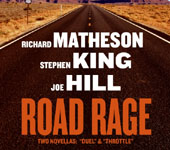
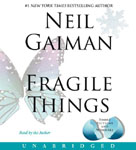

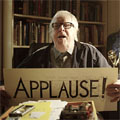

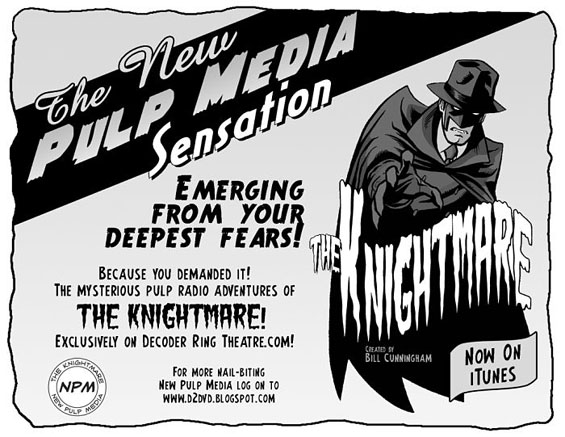
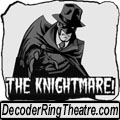 The Knightmare (The Murder Legion Strikes at Midnight)
The Knightmare (The Murder Legion Strikes at Midnight)

